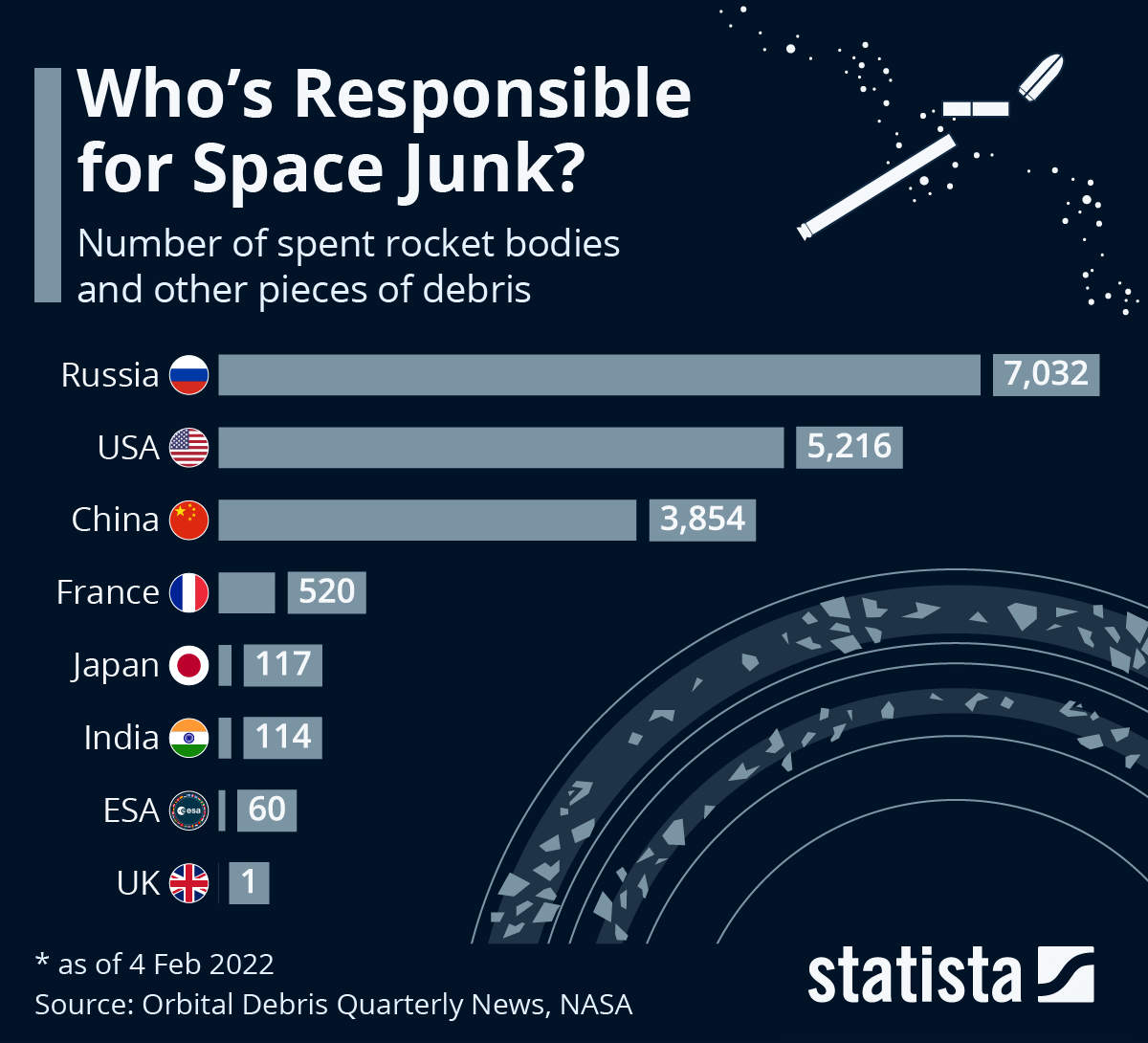The space race ended after the dissolution of the Soviet Union, but it is now starting to rise up again because of the fact that this is the sort of thing that could potentially end up achieving a space travel related goal can bring a lot of prestige to countries. In spite of the fact that this is the case, the quest to conquer space is creating a unique new problem, namely that of space junk or space debris.
Every object that is launched into space and left there is coming together to create a massive debris field that might collide with active satellites and potentially trap humanity on earth for the foreseeable future. However, what country is most responsible for this debris? It turns out that there are three main culprits behind the massive increase in space debris, namely the US, Russia and China with all things having been considered and taken into account.
With all of that having been said and now out of the way, it is important to note that Russia is responsible for well over 7,000 spent rocket bodies and other types of junk that is now orbiting the planet. The number for the USA is around 5,216, and China is currently sitting at around the 3,850 mark.
This problem will become increasingly pertinent in the future as major corporations start trying to launch consumer oriented space travel in low orbit. These shuttles will be at risk of getting crashed into by orbiting debris. One might assume that the solution is to slowly bring these pieces of junk down, but that runs the risk of depleting the ozone layer, generating a lot of heat as well as whatever the damage at the crash site was look like.
This is an issue that has no easy fix, and major world leaders would need to come together in order to figure out how to handle it. Humanity is starting to look to the stars once again, but we will only reach them if we approach this new era of space travel in a responsible way with all factors having been considered.
Read next: The World Of AR Technology Is Years Away From Mass Consumer Adoption, Confirms IDC
by Zia Muhammad via Digital Information World

No comments:
Post a Comment